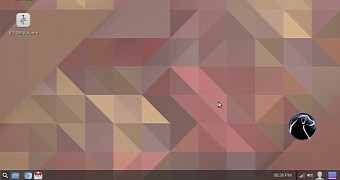Black Lab Software CEO Roberto J. Dohnert has informed Softpedia today, April 4, 2017, about the immediate availability of a new weekly ISO snapshot of the Black Lab Linux operating system.
Black Lab Linux Weekly 256 is out now, available for download from the official announcement, and it's the first to become the base for the next major release of the Ubuntu-based distro, namely Black Lab Linux 9, whose development cycle also starts today, along with the Feature Freeze stage.
In the Weekly 256 build of Black Lab Linux, we can find a lot of improvements, including better support for installing the operating system on computers using the new AMD Ryzen processors, better support for Microsoft Surface products, as well as improved interoperability support for Xinuos OpenServer X.
UEFI (Unified Extensible Firmware Interface) has been finalized and it should now be supported out of the box, the Xfce desktop environment got some optimizations to be more touchscreen friendly, 4G LTE connections should now be supported, and the detection of graphics cards was improved.
Slow boot-up issues addressed
The Black Lab Linux Weekly 256 ISO snapshot also addresses slow boot-up issues, updates the NetworkManager component to no longer drop Wi-Fi connections, and fixes a touchscreen issue with convertible PCs. As expected, it also backports all the latest security updates from the Ubuntu 16.04 LTS repositories.
A few issues remain in this weekly build, such as the fact that AMD Ryzen processors are not fully supported, which could be a little buggy at times, it's not yet possible to convert OpenSuSE Leap 42.2 RPM packages to DEB files with Alien, and users must manually provide the EFI file on Aspire One Cloudbook laptops.
Last but not least, it looks like you'll have to manually partition disk drives on HPE ProLiant BL460c Gen9 Server Blade systems. Again, you can download the Black Lab Linux Weekly 256 64-bit ISO image from the link above, but please keep in mind not to install and use the operating system on production environments.

 14 DAY TRIAL //
14 DAY TRIAL //